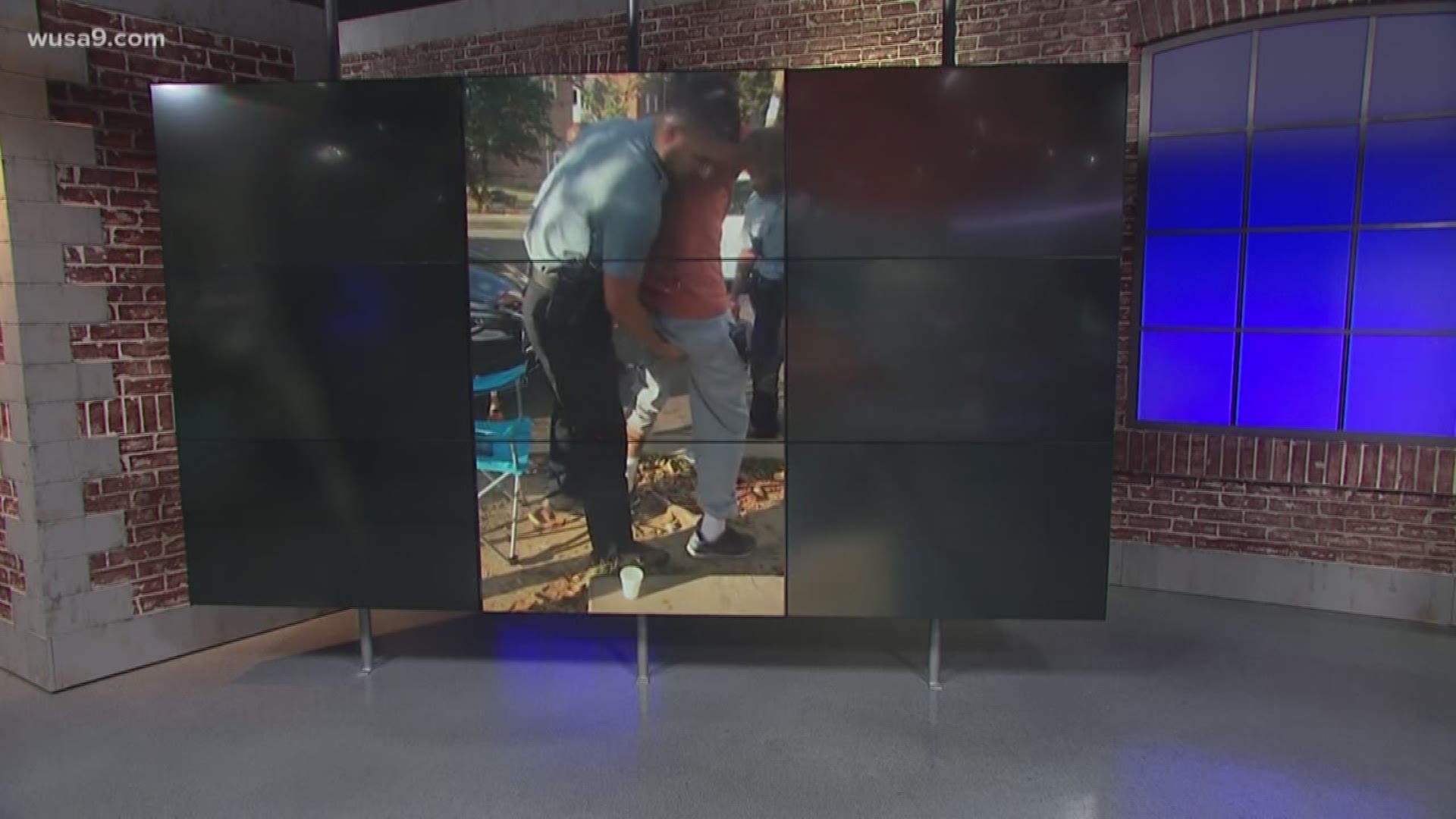WASHINGTON — Prosecutors from the Office of the Attorney General for the District of Columbia continued to make the case that a D.C. police officer should be fired for an improper and inappropriate body search on a man on Sept. 27, 2017.
The previously unreported search came 30 minutes after the officer, Sean Lojacono, conducted another improper search on M.B. Cottingham for which he was disciplined and removed from the D.C. Metropolitan Police Department's Gun Recovery Unit and detailed to MPD's second district.
The department recommended Lojacono be stripped of his badge after an internal investigation into that second search he conducted on the day in question.
D.C. has already paid out a six-figure settlement to the man from the first traffic stop that day after the incident was caught on cellphone video, posted to YouTube and went viral.
RELATED: D.C. Police settle lawsuit over 'invasive,' unconstitutional anal search during stop & frisk
After viewing the body worn camera video of the second alleged improper search, the current commander of MPD's Narcotics and Special Investigation Division said searching the anal cavity, as Lojacono did, was not permitted during a protective pat down, which is what he said Lojacono had probable cause for.
"People do often hide guns in that area," MPD Commander John Haines said. "But the intrusive searching of the anal cavity area was excessive and beyond the scope of a protective pat down."
MPD tactics training instructor Frank Magda, who also viewed that video added, "I don't even know where to begin with that."
Magda demonstrated a proper pat down on one of two prosecutors from the assistant attorney general's office. Magda said a suspect pat down should extend up to the groin and area between the anus and scrotum. But Magda said a pat down is light not intrusive in the manner Lojocano can been seen searching the suspect in the video.
Magda also testified on the negative impact on community-police relations when members of the community witness the types of improper searches of which Lojacono is accused.
In cross examination, Lojacono’s defense attorney, Marc Wilhite, continued to hammer the point that officers are trained while performing a search to pay attention to areas where people are known to hide contraband, including the groin.
The bigger question facing the hearing panel, made up of three D.C. police commanders, is whether Lojacono "manipulated" the groin of his suspects and whether that was justified to potentially dislodge contraband.
On Thursday, Wilhite showed body worn camera video of a search and arrest from involving MPD Officer Dominique Tyson, who can be seen repeatedly attempting to reach into a suspect's underwear to retrieve crack cocaine.
Tyson still on the force, and Wilhite was arguing Lojacono is not alone doing field search of buttocks/groin area and should not be fired for that.
Van Hook charged that man with possession of a controlled substance with intent to distribute. He also testified that officers mistakenly thought the two men they stopped did have a weapon, which turned out to be false.
Van Hook also admitted under questioning he did the invasive body search, reaching into the drivers pockets, without telling the suspect he was under arrest, which is also against MPD general orders.
Lojacono's alleged improper search came on the passenger of that vehicle, who did not have drugs or weapons on him.
Lojacono, son of former MPD commander Chris Lojacono, joined department in January 2014, which means he had close to the minimum of 3 years' experience when he applied and was given a position on MPD's Gun Recovery Unit in the Narcotics and Special Investigations Division. The searches ultimately led to Lojocano’s firing happened just months after he would have joined GRU and NSID.
The hearing panel, made up of three D.C. police commanders, need only find a preponderance of the evidence to uphold Lojacono’s firing, not that the searches were improper beyond a reasonable doubt.

